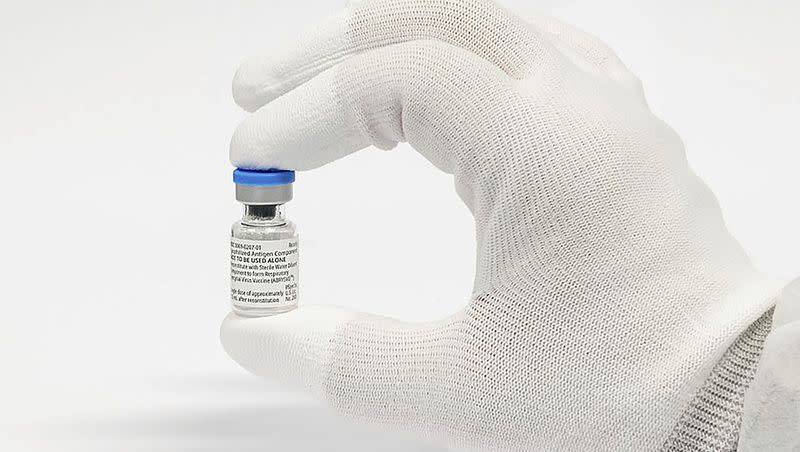For baby’s sake, CDC says pregnant women need to have this vaccine

More babies are hospitalized for respiratory syncytial virus than any other cause. And now that an RSV vaccine has been approved, the Centers for Disease Control and Prevention is urging pregnant women to make sure they take advantage of it, for the sake of the child.
RSV can be especially severe in infants.
Pfizer’s vaccine, sold as Abrysvo, reduces the risk of hospitalization for babies by 57% in the first six months after birth, according to the CDC. The recommendation is that pregnant women get the injection between week 32 and week 36 of their pregnancy.
This is the first fall/winter — the typical start of RSV season — when vaccines are available for RSV.
CDC reports that most children will have RSV before they turn 2. Symptoms of the respiratory virus include runny nose, loss of appetite, coughing, sneezing, fever and wheezing. The only symptoms in very young children could be irritability, a decrease in activity and congestion.
For both very young children and older adults, though, RSV can become dangerous. In babies, it can cause severe infections, including lung inflammation and pneumonia. Each year, up to 300 children under age 5 die of complications from RSV, while many more are hospitalized. Among adults older than 60, as many as 160,000 are hospitalized each year.
Reducing risk
“The vaccine is one of two new tools we have this season to protect babies from severe RSV illness,” the CDC announcement said. “Last month, CDC recommended a new RSV immunization for infants that has been shown to reduce the risk of both RSV-related hospitalizations and health care visits in infants by about 80%.”
The Deseret News quoted Dr. Peter Marks, director of the FDA Center for Biologics Evaluation and Research, about the approval of the vaccine in August. “RSV is a common cause of illness in children and infants are among those at highest risk for severe disease, which can lead to hospitalization,” he said. “This approval provides an option for health care providers and pregnant individuals to protect infants from this potentially life-threatening disease.”
In pregnancy
In most cases, only one vaccine is needed each year, but getting it during pregnancy is believed to protect both the mother and her child from RSV during the first months of the baby’s life. Because it takes some time for immunity to develop after a vaccine, a doctor might recommend the postnatal vaccine if the baby was born soon after the shot was administered to the pregnant woman.
For pregnant women, the most common side effects from receiving an Abrysvo injection are pain where the shot is given including muscle pain, as well as headache and nausea.
The U.S. Food and Drug Administration is also requiring Pfizer to continue studying the side effects related to use among pregnant women.
CDC also recommends both the updated COVID-19 and influenza vaccines for anyone 6 months or older.

